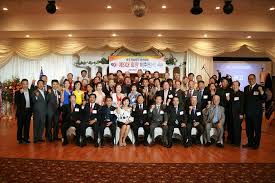CA
ON
럭키조경 & 나무자르기
전화: 647-564-8383
4699 Keele St. Unit 218 Toronto, ON

한인 시니어 탁구협회
전화: 647-209-8933
1100 Petrolia Rd Toronto, ON
4.jpg)
홍이표치과
전화: 647-985-0456
9625 Yonge St #4, Richmond Hill, ON Toronto, ON
1.jfif)
호남향우회 (토론토)
전화: 647-981-0404
7 Bishop Ave. #2411 Toronto, ON

캐나다 공인 컨설턴트 - 한인크레딧 컨설팅
전화: 416-897-8438
1 High Meadow Place, Unit 2 North York, ON

변호사 정찬수 법률사무소
전화: +82 2-536-1144
서울특별시 서초구 서초동 Toronto, ON
1.jfif)
스마트 디지탈 프린팅 - 인쇄 및 디자인
전화: 416-909-7070
4065 chesswood dr. Toronto, ON
.jfif)
대형스크린,LED싸인 & 간판 - 대신전광판
전화: 416-909-7070
4065 Chesswood Drive Toronto, ON

최고의 POS시스템 - 스마트 디지탈 POS
전화: 416-909-7070
4065 CHESSWOOD DR. NORTH YORK Toronto, ON
0.jfif)
부동산캐나다 (Korean Real Estate Post)
전화: 416-449-5552
1995 Leslie Street Toronto, ON
.jfif)
싸인건설
전화: 416-909-7070
4065 Chesswood Dr. North York, ON
0.jfif)
놀부 - 한식/일식/중식
전화: 416-221-4700
3 Elmhurst Ave, North York, ON

It would be a place where all the visitors including me share the life stories and experiences through their activities,especially on life as a immigrant.
Why don't you visit my personal blog:
www.lifemeansgo.blogspot.com
Many thanks.
블로그 ( 오늘 방문자 수: 109 전체: 267,320 )
거짖 줄기세포배양에 대한 Reuters 뉴스
lakepurity
2005-12-16
Probe into 'fake stem cell work'
S. Korean stem cell scientist to speak on allegations
거짖줄기세포배양에 대한 증명.
한국의 줄기세포 과학자 정황에 대한 입장 발표 할것.
Thursday, December 15, 2005; Posted: 11:25 p.m. EST (04:25 GMT)
South Korea (Reuters) -- One of South Korea's leading universities has said it will step up an investigation into the country's top stem-cell scientist after reports key parts of a landmark paper were fabricated.
서울발(로이터) - 한국의 유수 대학중의 한 대학에서, 줄기세포배양에 대한 연구자료가 거짖으로 작성됐다는 보도가 있은후, 줄기세포배양의 최고 선임과학자에 대한 조사를 강도높게 진행할것이라고 발표했읍니다.
Thursday's reports brought to a head a controversy over work by Hwang Woo-suk, whose team at Seoul National University published the first scientific paper on cloning a human embryo in 2004 and this year displayed the world's first cloned dog.
서울대학교의 황우석 교수가 이끄는 연구팀에 의해, 2004년도 인간태아의 복제와 금년에는 첫번째로 복제시도된 개를 전세계에 발표된바 있는 연구서의 진위 여부를 묻는 보고서가 목요일에는 가장큰 관심거리로 떠 올랐다.
"Seoul National University will probe doubts raised about (Hwang's) 2005 thesis first and, if the doubts are confirmed, will replicate experiments," the university said in a statement on Friday, referring to a study on tailor-made human stem cells published in May.
The case has wide ramifications for the already controversial field of stem-cell research and for the prestige of South Korea, where Hwang has become a folk hero.
Hwang -- a charismatic figure pictured with the cloned puppy earlier this year and more recently filmed unshaven in hospital suffering from exhaustion -- was in a meeting and did not attend a news conference at which the university statement was read.
He may brief reporters at 0500 GMT.
The professor, who was 53 on Thursday, has been under scrutiny since November 24 when he apologized for two junior female researchers donating their eggs for his work and for not releasing information about that incident promptly.
Roe Jung-hye, the university's dean of research affairs, told reporters the review team would send Hwang's team a questionnaire on Monday and a conclusion could be reached in one or two weeks.
She said the reports raised fresh doubts about Hwang's work. The probe, already arranged before the latest reports surfaced, would go on even if Hwang confirmed the study had flaws.
Just two months ago, South Korean President Roh Moo-hyun opened a World Stem Cell Hub centre, billed as a project to put the country at the forefront of cloning research.
If the pinpointed study proves to be flawed or false it would rank as one of the biggest science fraud cases in years.
"I am sure anti stem-cell activists will use this to show that there are problems with this science and that it is not effectively regulated," said David Winickoff, assistant professor of bioethics at the University of California, Berkeley.
Shares in South Korean firms involved in biotechnology -- a key growth area for Asia's fourth-largest economy -- were down by their daily limit of 15 percent. Overall sentiment suffered, too.
Tailor-made
"Even though other sectors have no relation to the news, there has been an indirect impact on market sentiment," said Kim Joong-hyun, an analyst at Goodmorning Shinhan Securities. "From a Korean perspective, the news was shocking."
Government officials held a meeting on the case on Friday.
"The government will decide whether to continue to support Hwang team's research after we have results of Seoul National University investigation," a government spokesman said.
A U.S. cloning and stem-cell expert who had lent his name and prestige to Hwang's work, Dr. Gerald Schatten of the University of Pittsburgh Medical Center, earlier this week alleged there may have been fabrications and asked to have his name taken off a study he co-authored with Hwang.
On Thursday, Roh Sung-il, a hospital administrator and specialist in fertility studies who worked directly with Hwang, said his colleague had admitted there were fabrications in the second study on tailor-made human stem cells.
"Professor Hwang admitted to fabrication," Roh said on South Korea's MBC television.
Roh told media nine of the 11 stem-cell lines -- batches -- that were part of the tailored stem study paper were fabricated and the authenticity of the other two was questionable.
Reports in South Korean media said some photographic images of the stem-cell lines may have been manipulated to make it appear as if there were 11 separate lines, or batches. Hwang had recently asked Science to correct some images in his study.
Science said it had heard nothing from Hwang so far.
Another television network, KBS, quoted Roh as saying: "I agreed with Hwang to ask for it (the paper) to be withdrawn."
In the disputed study, Hwang's team reported they had used a cloning method called somatic cell nuclear transfer to create lines of genetically identical stem cells from nine different patients, most with a rare neurological disease.
The study appeared to fulfil one promise of embryonic stem-cell research -- the ability to tailor medicine to individuals, and to study a patient's disease in the laboratory.
독자의 한사람인 저의 생각으로는,아직은 서부른 결론을 내리는것을 시기상조인것 같읍니다. 좀더 인내를 갖고, 조사를 지켜보고, 또 선임 연구관 황박사의 정황 설명을 듣고, 그후에 판단을 해 보는것이 이성있는 독자들이 해야할 행동이라고 저는 믿습니다.